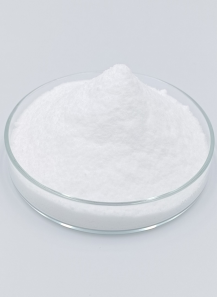Ammonium Chloride
primarily used in medical settings for specific therapeutic purposes rather than as a general health supplement.
Cart
No products
No products

primarily used in medical settings for specific therapeutic purposes rather than as a general health supplement.
Ammonium chloride is primarily used in medical settings for specific therapeutic purposes rather than as a general health supplement. Its main medical applications include:
Treatment of cough with mucus - It works as an expectorant by decreasing the stickiness of mucus (phlegm) and helping in its removal from the airways.
As an acidifying agent administered intravenously to treat metabolic alkalosis and low chloride levels (hypochloremia). Metabolic alkalosis is a condition with high alkalinity of body fluids.
It can be used as a diuretic for people with edema or Läennex diseases, with a recommended dose of nine grams per day. It increases the renal excretion of chloride.
It can function as an expectorant due to its irritative action on the bronchial mucosa, causing the production of respiratory tract fluid which facilitates effective cough.
It can be used as an acidifier, as this salt results in increased acidity concentrations of free hydrogen ions.
Important health considerations:
Ammonium chloride should only be used under medical supervision. You should not take it if you have kidney disease, liver disease, or if you are losing sodium.
Common side effects include metabolic acidosis, ammonia toxicity symptoms, rapid breathing, EEG abnormalities, involuntary muscle contractions, seizure, mental confusion, drowsiness, rash, low blood potassium levels, high blood chloride levels, abdominal pain, nausea, and vomiting.
It's always important to consult your doctor before taking any type of medicine containing ammonium chloride, as taking the wrong medicine can harm your health.
In general, small doses of ammonium chloride are unlikely to affect human health, but prolonged exposure to ammonium chloride fumes may cause respiratory problems, headaches, and eye irritation.
| Mechanism | - |
| Appearance | - |
| Longevity | - |
| Strength | - |
| Storage | - |
| Shelf Life | - |
| Allergen(s) | - |
| Dosage (Range) | - |
| Recommended Dosage | - |
| Dosage (Per Day) | - |
| Recommended Dosage (Per Day) | - |
| Mix Method | - |
| Heat Resistance | - |
| Stable in pH range | - |
| Solubility | - |
| Product Types | - |
| INCI | - |